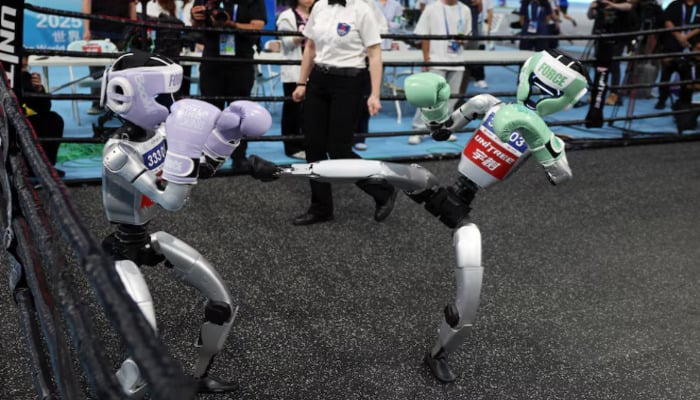
Unitree Robotics humanoid robots compete in a kickboxing match at the inaugural World Humanoid Robot Games, at the National Speed Skating Oval in Beijing, China August 15, 2025. — Reuters
In a jaw-dropping demonstration of the tremendous advancements China has achieved in robotics, spectators were baffled after watching robots racing, playing, and crashing into one another at the three-day-long World Humanoid Robot Games kicked off on Friday in China.
Having made robots partake in sports, China showcased its progress in artificial intelligence (AI) and robotics, as 280 teams from 16 countries participated in the event.
Competitions featured various sports, including track and field and table tennis, along with robot-specific challenges like sorting medicines and cleaning tasks.
Teams hailed from nations such as the United States, Germany, and Brazil, with 192 teams representing universities and 88 from private companies, including China's Unitree and Fourier Intelligence. Participants utilised robots manufactured by Chinese companies like Booster Robotics.
Max Polter, a member of the HTWK Robots football team from Germany, expressed the dual purpose of the event: “We come here to play and to win. But we are also interested in research,” he noted, emphasising the value of testing innovative approaches in a competitive setting.
At the Beijing games, which charged ticket prices ranging from 128 to 580 yuan ($17.83 to $80.77), robots often collided and fell during matches. Despite frequent tumbles, many robots managed to right themselves, earning cheers from the audience.
Organisers highlighted the event's role in collecting data for practical applications, such as improving robots' coordination for tasks in factory settings.
China's ever-increasing direction of resources and investments to robotics is led by its ageing population and competition with the US in advanced technologies.
















